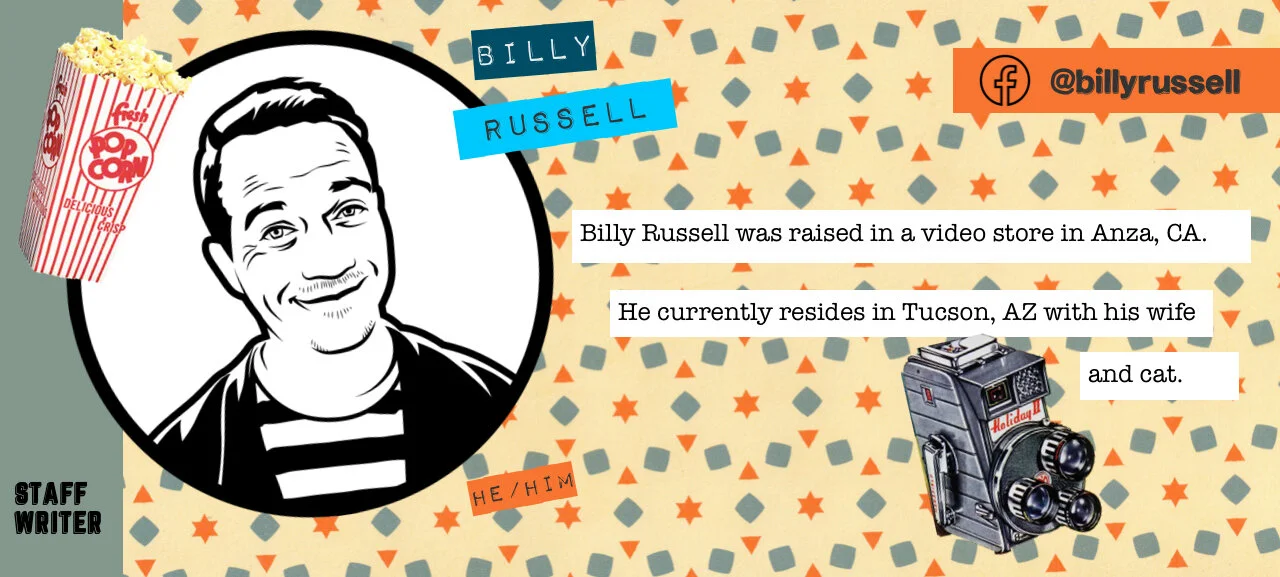ONE FALSE MOVE at 30: A masterclass in subtlety on race and class
Directed by Carl Franklin
Written by Billy Bob Thornton and Tom Epperson
Starring Bill Paxton, Billy Bob Thornton, Michael Beach and Cynda Williams
by Billy Russell, Staff Writer
Now, here is a movie that, on its surface, is about something we’ve seen a million times: Criminals, in a world of violence, come to a head with law enforcement with typically bloody results. It’s not often that a movie such as this decides to rise above and be about something more than bullets, blood and car chases, but when it does, you’re looking at something very special and meaningful. A movie that actually has something to say. And so, One False Move, to me, is among the best films about cops and criminals ever made. It joins the ranks of Fargo, Heat or even Goodfellas for that matter.
Bill Paxton plays Dale “Hurricane” Dixon, the local sheriff of a small Arkansas town, the kind of town you see in movies where the local lawman talks about how he hasn’t had to pull his sidearm in years. He’s especially never had to kill anybody in the line of duty.
Billy Bob Thornton and Michael Beach play Ray and Pluto, two hardened criminals who just committed murder to score cash and drugs and will murder more if they have to, if anyone stands in their way. They don’t view violence as an evil, but as a necessary tool to get what they want.
Cynda Williams plays Fantasia, the young girl along for the ride with them. She’s tries to be their conscience, to steer them right when things go wrong. She thinks she has a conscience that Ray and Pluto lack, but she’s just as guilty in the murders as they are, while keeping a disassociation from the violence. She tells herself she has no choice.
Jim Metzler and Earl Billings play Detectives Cole and McFeely from the LAPD. They team up with Hurricane Dixon to arrest Ray, Pluto and Fantasia. Fantasia is from Dixon’s town and they have a good feeling that they may stop there on their way.
Much like Thornton’s other screenplay, Sling Blade, what happens feels inevitable. It feels like everyone slowly marching toward their fate, powerless to stop what happens, but the beauty in One False Move is seeing the characters calculate their next steps.
We have six leads—three are Black, three are white. One False Move is about how they all navigate a world of racism, but it doesn’t provide easy answers about what’s right, what’s wrong, or wax nostalgic on how it wishes the world could be. Instead, we have main characters, ostensibly good guys, fighting for truth and what they perceive as justice, but don’t even bat an eye at using the N-word at a polite dinner. We have criminals who had their lives destroyed at a young age by older white men who should have known better, but used their racial privilege to get away with monstrous acts.
Hurricane is a great character, because he embodies a realistic view of what racism in America looks like. It’s not hidden behind some white robe. It’s not calling for violence. Instead, he greets the world with a smile. He has no idea that he’s a racist. If you asked him, he’d probably tell you, “Hell, no!” he isn’t. In fact, he’s a pretty good guy, all around. He loathes violence. He’s a smart lawman, but he’s guilty of terrible acts, and because he’s on the “right side” of things, he’s blind to his own actions. He feels a certain guilt, but makes no acts toward forgiveness. To
Carl Franklin directs One False Move with such confidence. He doesn’t shy away from the brutal, realistic violence, but he doesn’t revel or leer at the mayhem. He doesn’t wag his finger at the audience. He simply shows the world for what it is. He shows us criminals being hunted by the police, but he also shows the police perpetuating an environment that creates and breeds crime.
It makes sense that Joel and Ethan Coen would later work with Billy Bob Thornton, because there is a scene involving a Highway Patrolman pulling over a car he knows to be billed with guilty suspects, that Fargo would later (coincidentally, perhaps) echo. Many of the beats are the same, but they both have their own sort of poetry to the tension and explosive payoff.
The screenplay allows its characters to be human, and to make mistakes. The two LAPD detectives laugh at Hurricane for thinking he could hold his own in a big city police department. They feel bad for laughing, but they’re not exactly wrong. Hurricane’s wife even quietly scolds one of the detectives for leading him on, because he’s liable to get himself killed. To him, chasing the bad guys is just a bit of fun, and when the reality hits him, he has to come face to face with himself and the horrible things he’s done.
Movies like One False Move are sadly too rare: Unflinching in its brutality but human enough to contemplate what brought everything together. It’s a masterpiece.


